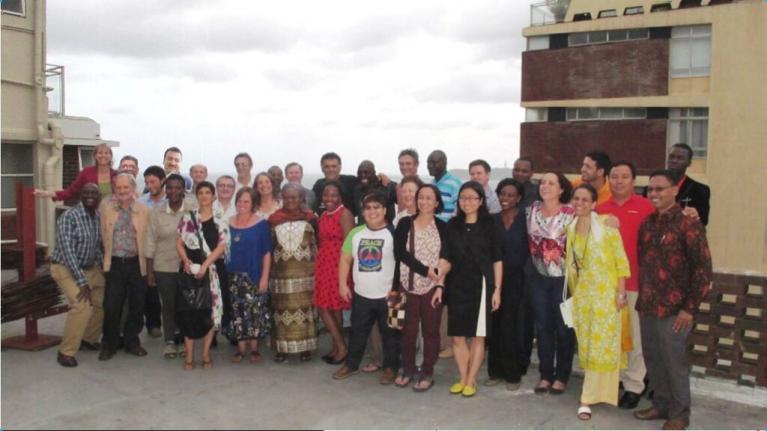Latest Resources

20 July 2017
Call to public meeting on corporate seed Bills ahead of public hearing
The Plant Breeders’ Rights and Plant Improvement Bills restrict the saving, trading, exchanging, and sale of seed. This can have massive ramifications on seed and food sovereignty, agricultural biodiversity, access to diverse seed, and increasing the disparities and inequalities in South African agriculture, food and nutrition. We urgently need to protect and preserve our food […]

13 July 2017
GM Agrofuel maize to enter SA food system!
In this GMO Alert, the African Centre for Biodiversity (ACB) shares information that the Minister of Agriculture, Forestry and Fisheries, Senzeni Zokwana, has in February 2017, granted Syngenta SA a commodity permit to import genetically modified (GM) maize that is genetically engineered for enhanced ethanol production for the agrofuels industry. (The maize expresses an enzyme, […]

3 July 2017
Lobbying papers on South Africa’s Plant Improvement Bill and Plant Breeders’ Rights Bill
Commentary on South Africa’s Plant Improvement Bill and Plant Breeders’ Rights Bill. Read here.

25 April 2017
Objection to commercial release of MON87460 X NK603 X MON89034 (triple stacked involving drought ...
In this objection, ACB raises numerous concerns with the application by Monsanto for the commercial release of the triple stacked event. Drought tolerance is a highly complex genetic trait that cannot be addressed by single gene insertions, as shown by the lack of data backing up the applicant’s claim that this GM variety shows “improvements […]

17 November 2016
Comments on the revised draft regulations (draft 3) for implementing the Arusha Protocol for the ...
Further comments on the revised regulations (draft 3) for the implementation of ARIPO’s Arusha Protocol for the Protection of New Varieties of Plants, that will be submitted for adoption in December 2016. This paper focuses on some of the most problematic aspects that needs to be rectified by ARIPO Member States as these perpetuate impingement […]

28 July 2016
ACB comments on revised Draft Regulations (Draft 2) for Implementing the Arusha Protocol for the ...
The revised regulations for the implementation of the African Regional Intellectual Property Organisation’s (ARIPO’s) Arusha Protocol for the Protection of New Varieties of Plants continues to perpetuate the impingement of national sovereignty, fails to safeguard farmers’ rights and farmer seed systems and to provide safeguards against biopiracy. These comments, submitted to ARIPO, raise concerns and […]

18 February 2016
Open letter to UPOV and FAO on the new intellectual property and seed laws in Africa, Asia and La...
The African Centre for Biodiversity, the Network for a GE Free Latin America and JINUKUN – COPAGEN, on behalf of the organisers of a South – South dialogue on intellectual property (IP) and seed laws, want to bring to your attention the declaration that resulted from the Dialogue. This Dialogue was attended by several organisations […]

11 February 2016
Over 57,000 Express Concern with Human Feeding Trials of GMO Bananas
Simultaneous demonstrations in Ames and Seattle highlight controversy surrounding Gates Foundation-funded Transgenic Banana Study at Iowa State University Ames, IA and Seattle, WA: On Monday February 15th, Iowa State University graduate students will deliver 57,309 petition signatures to the College of Agriculture and Life Sciences at ISU while AGRA Watch members deliver the same petition […]

5 January 2016
Declaration on Plant Variety Protection and Seed Laws from the South-South Dialogue
We, participants at the South-South Dialogue, are members of peasant and civil society organisations and concerned individuals from Africa, Asia, Latin America and Europe working on issues of food and seed sovereignty, peasants’ control of seed production and exchange, and biodiversity. We gathered in Durban, South Africa 27-29 November 2015 to share information and knowledge, […]

17 December 2015
APPEAL AGAINST MONSANTO’S BOGUS GM DROUGHT TOLERANT MAIZE HIGHLIGHTS NEED FOR URGENT AGRICULTURE ...
South Africa is in the grip of the worst drought since 1992, with many parts of the country experiencing record temperatures and little to no rain. The maize and transport industries are currently planning for a worst-case scenario, where the continent’s largest maize producer – South Africa – may potentially need to import 4 million […]
